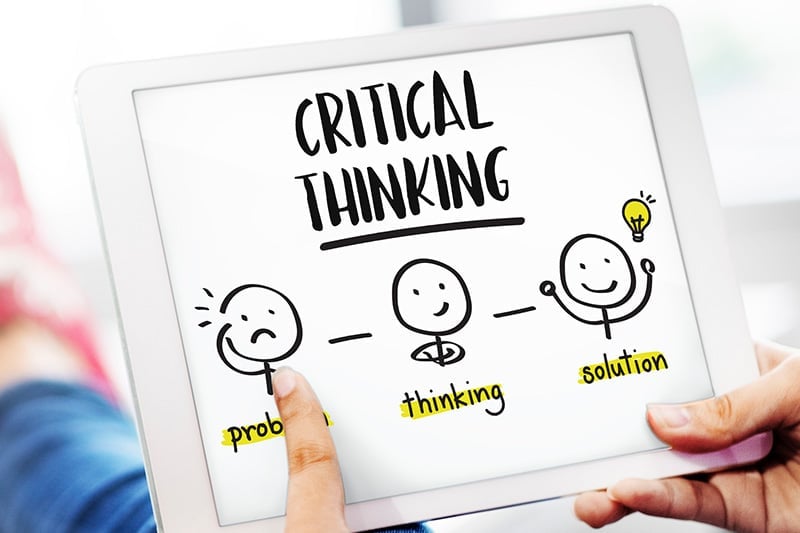Education & Career Trends: November 4
Curated by the Knowledge Team of ICS Career GPS

- Excerpts are taken from an article published on psychologytoday.com.
Critical thinking is often described as one of the most important skills a person can possess, and for good reason. It’s the cognitive superpower that allows us to navigate the complexities of our modern age with confidence and clarity.
Picture this: you’re bombarded with news articles, social media posts, and conversations filled with contrasting viewpoints. How do you separate fact from fiction? How can you make informed decisions, whether it’s choosing a new career path, deciding who to vote for, or even selecting the best smartphone for your needs?
The answer lies in enhancing your critical thinking skills. These skills empower you to cut through the noise, identify biases, evaluate evidence, and arrive at reasoned conclusions. But, here’s the catch: critical thinking isn’t an innate talent; it’s a skill that can be cultivated and honed. In this blog, we’ll explore practical ways to enhance this invaluable ability.
Writing is a traditional and powerful tool to exercise and improve your critical thinking skills. Consider these ways writing can help enhance critical thinking:
1. Clarity of Thought
Writing requires that you articulate your thoughts clearly and coherently. When you need to put your ideas on paper, you must organise them logically, which requires a deeper understanding of the subject matter.
2. Analysis and Evaluation
Critical thinking involves analysing and evaluating information. When you write, you often need to assess the validity and relevance of different sources, arguments, or pieces of evidence, which hone your critical thinking skills.
3. Problem-Solving
Writing can be a problem-solving exercise in itself. Whether crafting an argument, developing a thesis, or finding the right words to express your ideas, writing requires thinking critically about approaching these challenges effectively.
4. Research Skills
Good writing often involves research, and research requires critical thinking. You need to assess the credibility of sources, synthesize information, and draw conclusions based on the evidence you gather.
5. Argumentation
Constructing a persuasive argument in writing is a complex process requiring critical thinking. You must anticipate counterarguments, provide evidence to support your claims and address potential weaknesses in your reasoning.
6. Revision and Editing
To be an influential writer, you must learn to read your work critically. Editing and revising requires evaluating your writing objectively, identifying areas that need improvement, and refining your ideas and arguments.
7. Problem Identification
In some cases, writing can help you identify problems or gaps in your thinking. As you write, you might realise that your arguments are not as strong as you initially thought or that you need more information to support your claims. This recognition of limitations is a crucial aspect of critical thinking.
Writing is a dynamic process that engages multiple facets of critical thinking. It has been a valuable tool used in education, business, and personal development for centuries.
…
Have you checked out yesterday’s blog yet?
How Journaling Can Help You Stay Positive and Motivated
(Disclaimer: The opinions expressed in the article mentioned above are those of the author(s). They do not purport to reflect the opinions or views of ICS Career GPS or its staff.)
Like this post? For more such helpful articles, click on the button below and subscribe FREE to our blog.




One Reply to “How to Improve Your Critical Thinking Skills”